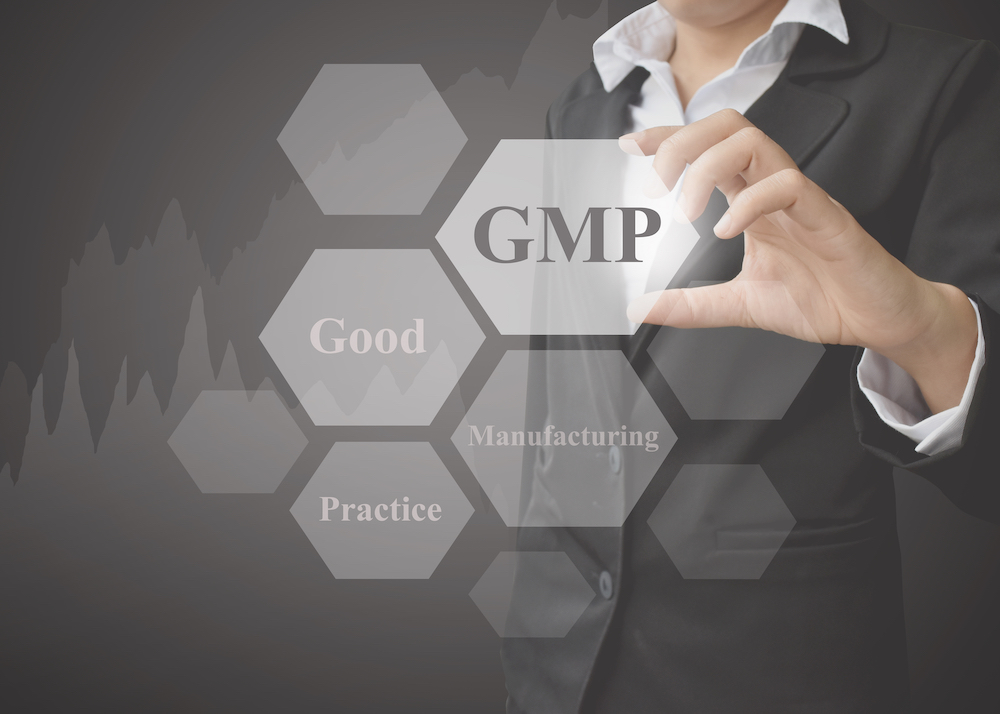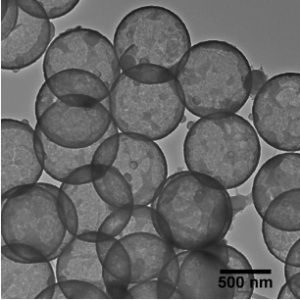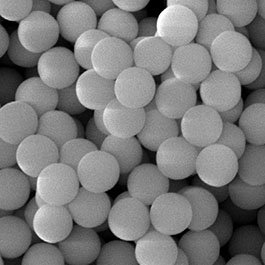Glantreo’s platform technology, SOLIT™, has been developed over the last 5 years facilitating synthesis of a variety of precisely engineered and highly characterized titania / titanium dioxide nanoparticles. Our particles are monodisperse, unagglomerated, and have well-defined sizes and morphologies. The low coefficient of variation (CV <15%) value of the SOLIT™ particles is unique amongst other products currently available on the market.
Particles are available in sizes between 150nm and 900nm, and supplied as aqueous or alcoholic suspensions in a range of concentrations (2.5-10wt%). As well as low CV values Glantreo’s new TiO2 products offer unique properties such as high dielectric constant (95-105) and high refractive index (2.488). In addition to these features, the uniform size and shape of Glantreo’s Titania particles enables outstanding reliability for use in: Photocatalysis, Photovoltaics, Chromatography, Self cleaning surfaces, Advanced pigments and cosmetics and High refractive index optical coatings
Glantreo has been producing quality nanomaterial for 10 years in an ISO 9001 certified operation. Technical support is always at hand and a quick delivery of your order is assured.

Purity 0.9999
Parcticle Sizes 150nm, 300nm, 500nm, 700nm, 900nm
%CV <15%
Format Aqueous & Ethanol Dispersion
wt% 2%, 5%, 10%
Pack size 2ml
Below you will find the different Product variations in our SOLIT™ Dispersion. In order to make them easy to find we have added a search function. To narrow down your selection you can search within a table. If you have any questions then please do not hesitate to ‘Ask and Expert’.
| Product Code | Format | Particle Size (nm) | Wt% | Pack Size (ml) |
|---|---|---|---|---|
| AD2.5NPPTiO2150R | Aqueous Dispersion | 150nm | 2.5% | 5ml |
| AD5NPPTiO2150R | Aqueous Dispersion | 150nm | 5% | 5ml |
| AD10NPPTiO2150R | Aqueous Dispersion | 150nm | 10% | 5ml |
| AD2.5NPPTiO2300R | Aqueous Dispersion | 300nm | 2.5% | 5ml |
| AD5NPPTiO2300NPR | Aqueous Dispersion | 300nm | 5% | 5ml |
| AD10NPPTiO2300R | Aqueous Dispersion | 300nm | 10% | 5ml |
| ADNPP2.5PTiO2500R | Aqueous Dispersion | 500nm | 2.5% | 5ml |
| AD5PNPPTiO2500NPR | Aqueous Dispersion | 500nm | 5% | 5ml |
| AD10NPPTiO2500R | Aqueous Dispersion | 500nm | 10% | 5ml |
| AD2.5NPPTiO2700NPR | Aqueous Dispersion | 700nm | 2.5% | 5ml |
| AD5NPPTiO2700R | Aqueous Dispersion | 700nm | 5% | 5ml |
| AD10NPPTiO2700R | Aqueous Dispersion | 700nm | 10% | 5ml |
| AD2.5NPPTiO2900R | Aqueous Dispersion | 900nm | 2.5% | 5ml |
| AD5.0NPPPTiO2900R | Aqueous Dispersion | 900nm | 5% | 5ml |
| AD10NPPTiO2900R | Aqueous Dispersion | 900nm | 10% | 5ml |
| ED2.5NPPPTiO2150R | Ethanol Dispersion | 150nm | 2.5% | 5ml |
| ED5NPPPTiO2150R | Ethanol Dispersion | 150nm | 5% | 5ml |
| ED10NPPTiO2150R | Ethanol Dispersion | 150nm | 10% | 5ml |
| ED2.5NPPTiO2300R | Ethanol Dispersion | 300nm | 2.5% | 5ml |
| ED5NPPTiO2300R | Ethanol Dispersion | 300nm | 5% | 5ml |
| ED10NPPTiO2300R | Ethanol Dispersion | 300nm | 10% | 5ml |
| ED2.5NPPTiO2500R | Ethanol Dispersion | 500nm | 2.5% | 5ml |
| ED5NPPTiO2500R | Ethanol Dispersion | 500nm | 5% | 5ml |
| ED10NPPTiO2500R | Ethanol Dispersion | 500nm | 10% | 5ml |
| ED2.5NPPTiO2700R | Ethanol Dispersion | 700nm | 2.5% | 5ml |
| ED5NPPTiO2700R | Ethanol Dispersion | 700nm | 5% | 5ml |
| ED10NPPTiO2700R | Ethanol Dispersion | 700nm | 10% | 5ml |
| ED2.5NPPTiO2900R | Ethanol Dispersion | 900nm | 2.5% | 5ml |
| ED5NPPTiO2900R | Ethanol Dispersion | 900nm | 5% | 5ml |
| ED10NPPTiO2900R | Ethanol Dispersion | 900nm | 10% | 5ml |
If you have published and cited Glantreo’s materials then click here to let us know.
Clifford A. Barnes, Andreas Elsaesser, Joanna Arkusz, Anna Smok, Jadwiga Palus, Anna Lesniak, Anna Salvati, John P. Hanrahan, Wim H. de Jong, Elzbieta Dziubaltowska, Maciej St?pnik, Konrad Rydzynski, George McKerr, Iseult Lynch, Kenneth A. Dawson and C. Vyvyan Howard, Reproducible Comet Assay of Amorphous Silica Nanoparticles Detects No Genotoxicity. Nano Letters, 2008, 8 (9), pp 3069–3074. doi: 10.1021/nl801661w http://pubs.acs.org/doi/abs/10.1021/nl801661w#citing
Makoto Ema∗, Norihiro Kobayashi, Masato Naya, Sosuke Hanai, Junko Nakanishi, Reproductive and developmental toxicity studies of manufactured nanomaterials, Reproductive Toxicology 30 (2010) 343–352
Iseult Lynch, Sara Linse, C Vyvyan Howard, Maciej Stepnik, Konrad Rydzynski, John Hanrahan, Wim de Jong, Dominique Langevin, Joachim Rädler, Wolfgang Parak, Yuri Volkov, Marek Radomski, Robert Thomas, Jacob Klein, Andrew A Barron, Colin Janssen, Fiona M Lyons, Francis Quinn, Bert Swennen, Peter Cuypers, Angela Duffy and Kenneth A Dawson, NANOINTERACT: A rational approach to the interaction between nanoscale materials and living matter, Journal of Physics: Conference Series Volume 170 Number 1.doi:10.1088/1742-6596/170/1/012040 http://iopscience.iop.org/1742-6596/170/1/012040/cites
Bashir Mustafa Mohamed, Navin Kumar Verma, Adriele Prina-Mello, Yvonne Williams, Anthony M Davies, Gabor Bakos, Laragh Tormey, Connla Edwards, John Hanrahan, Anna Salvati, Iseult Lynch, Kenneth Dawson, Dermot Kelleher,and Yuri Volkov, Activation of stress-related signalling pathway in human cells upon SiO2 nanoparticles exposure as an early indicator of cytotoxicity. Journal of Nanobiotechnology. 2011;9:29. doi:10.1186/1477-3155-9-29.http://www.jnanobiotechnology.com/content/9/1/29
Margriet V.D.Z. Park a,b,⁎, Wijtske Annema a, Anna Salvati c, Anna Lesniak c, Andreas Elsaesser d, Clifford Barnes d, George McKerr d, C. Vyvyan Howard d, Iseult Lynch c, Kenneth A. Dawson c, Aldert H. Piersma a,e, Wim H. de Jong a, In vitro developmental toxicity test detects inhibition of stem cell differentiation by silica nanoparticles, Toxicology and Applied Pharmacology 240 (2009) 108–116
Markus Roller, In vitro genotoxicity data of nanomaterials compared to carcinogenic potency of inorganic substances after inhalational exposure, Mutation Research 727 (2011) 72–85
Mostafa Yazdimamaghani, PhDa,b, Philip J. Moos, PhDb,c, Marina A. Dobrovolskaia, PhDd, Hamidreza Ghandehari, PhD, Genotoxicity of amorphous silica nanoparticles: Status and prospects, Nanomedicine: Nanotechnology, Biology, and Medicine 16 (2019) 106–125


